IHC says enforced disappearances can't happen without govt consent
5 min readIslamabad High Court Chief Justice Athar Minallah on Tuesday said that persons involved in enforced disappearances could not do it on their own without the consent of the federal government.
(Update on case, June 17: Government fails to produce missing people by deadline)
Justice Minallah gave these remarks during the hearing of missing bloggers and journalists’ case; Attorney General Khalid Javed Khan represented the government.
During the hearing of the case, the attorney general told the court they had made all the efforts, including arranging a meeting of the family of missing blogger and journalist Mudassar Naru with Prime Minister Imran Khan. However, no positive outcome emerged, he said.
Naaru went missing in August 2018 when he went to the Kaghan valley for vacation. Last spotted near the Kaghan river, Naaru was thought to have fallen and drowned into the river. However, his body was never found. There was also speculation that he might have taken his own life - a claim rejected by his family.
According to Dawn.com, Naaru’s family tried to register a first information report against “unidentified persons,” but the police refused to cooperate. A few months later, the journalist was spotted at a detention centre for ‘missing persons’ by one of his friends.
In Tuesday’s hearing, the attorney general said a large number of people who were reportedly missing during the last decade could not be included in “missing persons” category as some of them left the country to take part in jihad.
However, he added some people were present in Khyber Pakhtunkhwa’s detention centre as Pakistan was facing the issue of terrorism.
When the IHC chief justice asked the government’s response on the fact that missing people were abducted “under a policy devised by the federal government”, the attorney general responded by saying no government, including the present one and the former ones, had devised any policy related to forceful abduction of people.
Justice Minallah asked AG Khan why the federal government had not taken action against the forced abduction of people and why missing people were kept in detention centres.
Upon this, the court was informed that a case was pending before the Supreme Court related to detention centres and the government was working to draft a new law on it.
During the hearing of the case, the father of a missing persons told the court about the alleged forced abduction of his two sons in 2016 who were students of International Islamic University Islamabad’s Mass Communication and Law departments.
He went on that a joint investigation team was constituted by the Commission of Inquiry on Enforced Disappearances to probe the case. In its findings, the JIT concluded that it was a case of enforced disappearance.
On the directives of the commission, a first information report was registered in the police station, he said, adding he had submitted a plea asking those responsible for this act to be identified.
The IHC chief justice expressed his displeasure over the attonery general’s lack of answer on the abductions of two youth in broad daylight.
Justice Minallah remarked that thousands of people were protesting on the streets over the issue, while the CCTV footage of the abduction of the journalist was available.
When the attorney general said the law enforcement agencies could tell about the incidents, Advocate Colonel Inamur Raheem told the court a missing citizen was recovered when the picture of an intelligence officer involved in the missing persons case came to surface. Later, the citizen in his statement said that he had gone to Afghanistan.
Advocate Raheem told the court the number of missing persons were at least 8,279.
At this, Justice Minallah remarked that if this was the situation in the federal capital, he could only wonder what would be the condition in the other provinces.
AG Khan proposed that a report should be summoned from Islamabad inspector general regarding missing persons. The IHC chief justice remarked this was not a solution of the issue and that the AG should be the one to inform the court.
Justice Minallah, in his remarks, said that the court wanted action on the issue and not just reports.
The attorney general proposed that a positive message would be conveyed if a person involved in the missing persons case would be convicted and the court would initiate it with the cases in which the CCTV footage was available.
He further said if the chief executive would fail to initiate action following the identification of the accused, the prime minister was responsible.
It was then decided that the court would take up cases of enforced disappearances of those people where video recordings of the incidents are available.
However, the father of the two missing young men noted that there was no visual evidence of his sons’s abduction, and that the same rule couldn’t be applied in their case. He added that there was an eyewitnesses account had recorded their statements in the case, he said.
The father of the young men suggested that a tour of the detention centre could lead to the release of many people unlawfully detained by authorities.
At this the AG said a list of all the people imprisoned in the detention centres was available and that their families meet them.
Upon this, Justice Minallah remarked who could investigate a missing persons case when the State was involved in the enforced disappearance.
The IHC granted the federal government three weeks for effective action against enforced disappearances with the attorney general instructed to satisfy the court and tell about the initiatives at the next hearing.
The court also directed the attorney general to provide the list of missing people.
The court adjourned the case till February 14 with final arguments on the case in the next hearing.
For the latest news, follow us on Twitter @Aaj_Urdu. We are also on Facebook, Instagram and YouTube.






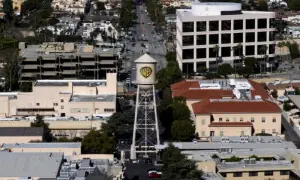









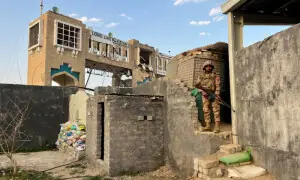
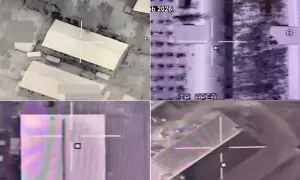
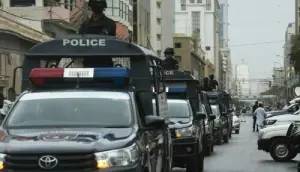
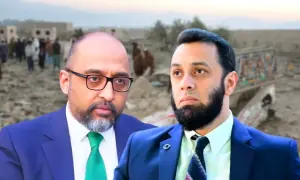
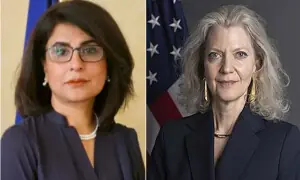
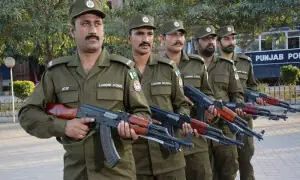
Comments are closed on this story.